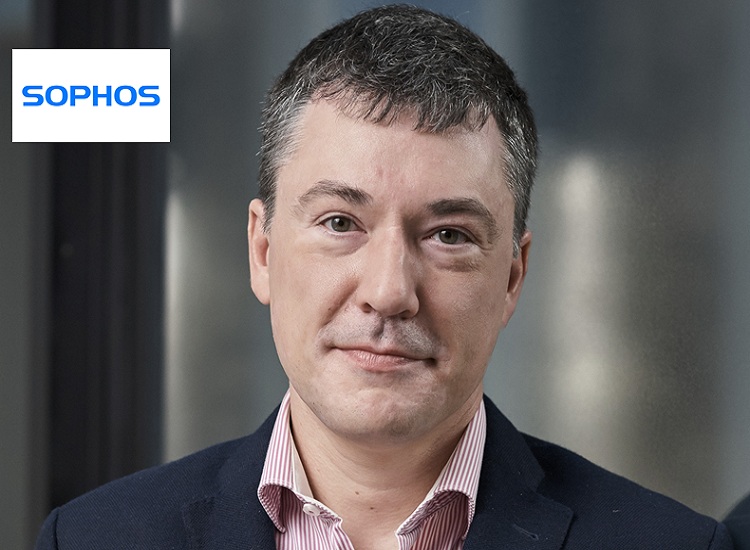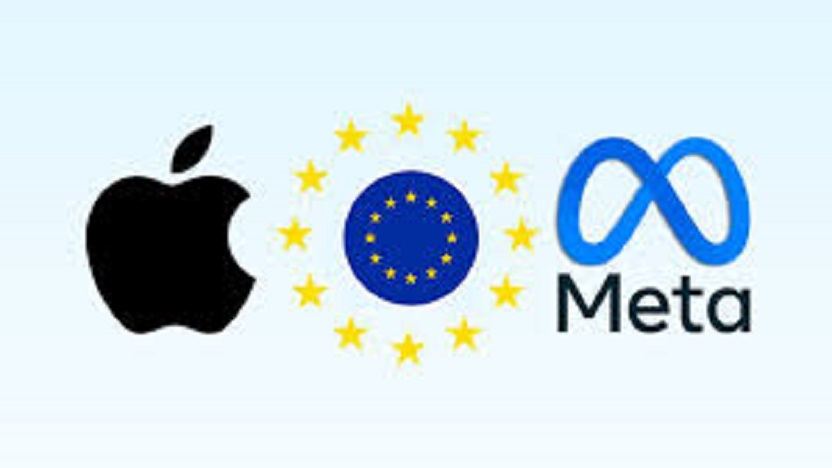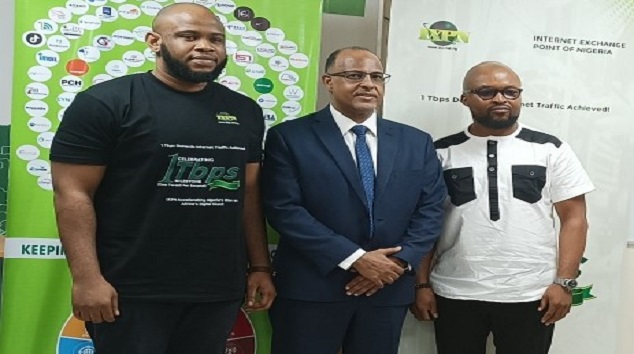Telecom
Ransomware Recovery Cost Reaches Nearly $2 Million- Sophos Survey Shows

Sophos, a global leader in next-generation cybersecurity, today announced the findings of its global survey, “The State of Ransomware 2021,” which reveals that the average total cost of recovery from a ransomware attack has more than doubled in a year, increasing from $761,106 in 2020 to $1.85 million in 2021.

The average ransom paid is $170,404. The global findings also show that only 8% of organizations managed to get back all of their data after paying a ransom, with 29% getting back no more than half of their data.
The survey polled 5,400 IT decision makers in mid-sized organizations in 30 countries across Europe, the Americas, Asia-Pacific and Central Asia, the Middle East, and Africa.
While the number of organizations that experienced a ransomware attack fell from 51% of respondents surveyed in 2020 to 37% in 2021, and fewer organizations suffered data encryption as the result of a significant attack (54% in 2021 compared to 73% in 2020), the new survey results reveal worrying upward trends, particularly in terms of the impact of a ransomware attack.
“The apparent decline in the number of organizations being hit by ransomware is good news, but it is tempered by the fact that this is likely to reflect, at least in part, changes in attacker behaviors,” said Chester Wisniewski, principal research scientist, Sophos. “We’ve seen attackers move from larger scale, generic, automated attacks to more targeted attacks that include human hands-on-keyboard hacking. While the overall number of attacks is lower as a result, our experience shows that the potential for damage from these more advanced and complex targeted attacks is much higher. Such attacks are also harder to recover from, and we see this reflected in the survey in the doubling of overall remediation costs.”

The main findings of the State of Ransomware 2021 global survey include:
· The average cost of remediating a ransomware attack more than doubled in the last 12 months. Remediation costs, including business downtime, lost orders, operational costs, and more, grew from an average of $761,106 in 2020 to $1.85 million in 2021. This means that the average cost of recovering from a ransomware attack is now 10 times the size of the ransom payment, on average
· The average ransom paid was $170,404. While $3.2 million was the highest payment out of those surveyed, the most common payment was $10,000. Ten organizations paid ransoms of $1 million or more
· The number of organizations that paid the ransom increased from 26% in 2020 to 32% in 2021, although fewer than one in 10 (8%) managed to get back all of their data
“The findings confirm the brutal truth that when it comes to ransomware, it doesn’t pay to pay. Despite more organizations opting to pay a ransom, only a tiny minority of those who paid got back all their data,” said Wisniewski.
“This could be in part because using decryption keys to recover information can be complicated. What’s more, there’s no guarantee of success. For instance, as we saw recently with DearCry and Black Kingdom ransomware, attacks launched with low quality or hastily compiled code and techniques can make data recovery difficult, if not impossible.”
· More than half (54%) of respondents believe cyberattacks are now too advanced for their IT team to handle on their own
· Extortion without encryption is on the rise. A small, but important 7% said that their data was not encrypted, but they were held to ransom anyway, possibly because the attackers had managed to steal their information. In 2020, this figure was 3%
“Recovering from a ransomware attack can take years and is about so much more than just decrypting and restoring data,” said Wisniewski. “Whole systems need to be rebuilt from the ground up and then there is the operational downtime and customer impact to consider, and much more. Further, the definition of what constitutes a ‘ransomware’ attack is evolving. For a small, but significant minority of respondents, the attacks involved payment demands without data encryption.
“This could be because they had anti-ransomware technologies in place to block the encryption stage or because the attackers simply chose not to encrypt the data. It is likely that the attackers were demanding payment in return for not leaking stolen information online. A recent example of this approach involved the Clop ransomware gang and a known financially-motivated threat actor hitting around a dozen alleged victims with extortion-only attacks.
“In short, it is more important than ever to protect against adversaries at the door, before they get a chance to take hold and unfold their increasingly multi-faceted attacks. Fortunately, if organizations are attacked, they don’t have to face this challenge alone. Support is available 24/7 in the form of external security operations centers, human-led threat hunting and incident response services.”
The main findings of the State of Ransomware 2021 for Nigeria:
· 22% of respondents from Nigeria had experienced a ransomware attack in the last 12 months, compared to 53% in 2020
· 39% of respondents from Nigeria that weren’t hit by ransomware in the last 12 months but expect to be hit in the future, believe that ransomware attacks are getting increasingly hard to stop due to their sophistication
· 26% of respondents from Nigeria that weren’t hit by ransomware in the last 12 months but expect to be hit in the future, say it is hard to stop their users from compromising the organization’s security
Sophos recommends the following six best practices to help defend against ransomware and related cyberattacks:
1. Assume you will be hit. Ransomware remains highly prevalent. No sector, country or organization size is immune from the risk. It’s better to be prepared, but not hit, rather than the other way round
2. Make backups and keep a copy offline. Backups are the main method organizations surveyed used to recover their data after an attack. Opt for the industry standard approach of 3:2:1 (three sets of backups, using two different media, one of which is kept offline)
3. Deploy layered protection. As more ransomware attacks also involve extortion, it is more important than ever to keep adversaries out in the first place. Use layered protection to block attackers at as many points as possible across an estate
4. Combine human experts and anti-ransomware technology. The key to stopping ransomware is defense in depth that combines dedicated anti-ransomware technology and human-led threat hunting. Technology provides the scale and automation an organization needs, while human experts are best able to detect the tell-tale tactics, techniques and procedures that indicate an attacker is attempting to get into the environment. If you don’t have the skills in house, look at enlisting the support of a specialist cybersecurity company – Security Operation Centers (SOCs) are now realistic options for organizations of all sizes
5. Don’t pay the ransom. Easy to say, but far less easy to do when an organization has ground to a halt due to a ransomware attack. Independent of any ethical considerations, paying the ransom is an ineffective way to get data back. If you do decide to pay, bear in mind that the adversaries will restore, on average, only two-thirds of your files
6. Have a malware recovery plan. The best way to stop a cyberattack from turning into a full breach is to prepare in advance. Organizations that fall victim to an attack often realize they could have avoided significant financial loss and disruption, if they had an incident response plan in place
The State of Ransomware 2021 survey report is available in full on Sophos.com.
The State of Ransomware 2021 survey was conducted by Vanson Bourne, an independent specialist in market research, in January and February 2021. The survey interviewed 5,400 IT decision makers in 30 countries, in the US, Canada, Brazil, Chile, Colombia, Mexico, Austria, France, Germany, the UK, Italy, the Netherlands, Belgium, Spain, Sweden, Switzerland, Poland, the Czech Republic, Turkey, Israel, UAE, Saudi Arabia, India, Nigeria, South Africa, Australia, Japan, Singapore, Malaysia, and the Philippines. All respondents were from organizations with between 100 and 5,000 employees.
Sophos Intercept X protects users by detecting the actions and behaviors of ransomware and other attacks.
Telecom
MTN Nigeria Reschedules Champs Uyo Finale to Honour Late Chairman Pascal Dozie

MTN Nigeria has announced the rescheduling of the MTN Champs Grand Finale to honour the legacy of its founding Chairman, Mr. Pascal Gabriel Dozie, who passed away on April 8, 2025.

The Grand Finale, which was originally scheduled to hold from April 30 to May 3, will now take place from May 6 to 9, 2025, at the Godswill Akpabio International Stadium in Uyo, Akwa Ibom State.
Dozie was a visionary leader whose pioneering role laid the foundation for what MTN has become today. For 18 years, from 2001 to 2019, he served as Chairman, leading with strength and conviction.
As one of Nigeria’s most respected businessmen and a champion of private sector development, he played a vital role in securing the GSM licence that launched MTN’s operations in Nigeria. His legacy continues to shape the company’s values and commitment to nation-building.
In a statement released earlier by the company, MTN Nigeria expressed deep sadness over his passing and extended heartfelt condolences to his family and loved ones.
“His unwavering belief in Nigeria’s potential and his dedication to its development were truly inspiring. His leadership at MTN Nigeria laid the foundation for our success, and his legacy will continue to guide us in the years to come,” said Karl Toriola, Chief Executive Officer, MTN Nigeria.
The MTN Champs initiative, launched in 2023, with the aim of building future olympians for Nigeria. It is MTN Nigeria’s bold commitment to discovering and nurturing the next generation of track and field athletes across the country.
Following regional competitions in cities such as Benin and Lagos, the Grand Finale in Uyo will bring together the most promising young talents from across Nigeria.
The new date allows athletes, fans, and partners alike to honour the memory of Mr. Dozie while continuing the spirit of excellence and youth development that he championed.
As the country and the MTN brand continue to mourn the loss of a trailblazer, MTN Nigeria remains steadfast in its mission to empower the next generation, on and off the track.
Telecom
EU Fines Apple and Meta €700m in Landmark Digital Markets Act Enforcement

European Commission has imposed landmark fines on tech giants Apple and Meta in the first enforcement actions under the Digital Markets Act (DMA), a new regulatory framework designed to enhance consumer choice and ensure fair competition in the digital economy.

Apple was fined €500 million (£428.3 million) for restricting app developers from guiding users to alternative purchasing options outside its App Store, a practice the commission said limited access to more affordable offers and stifled competition.
The commission has ordered Apple to amend its App Store policies by late June to comply with the DMA, warning that failure to do so could result in further daily penalties.
Meta, the parent company of Facebook and Instagram, was fined €200 million (£171.3 million) over its ‘pay or consent’ model, which required European Union users to either pay for an ad-free experience or consent to personalised advertising.
The commission found that this model failed to offer users a genuine choice and violated rules governing data processing and user consent. Meta’s revisions to this model, made in November 2024, are currently under review by the EU.
Both companies have pushed back against the commission’s decisions. Apple announced plans to appeal, stating that the ruling was unjust and detrimental to user privacy and security. “Today’s announcements are yet another example of the European Commission unfairly targeting Apple in a series of decisions that are bad for the privacy and security of our users, bad for products, and force us to give away our technology for free,” the company said.
Meta also criticised the EU’s approach, claiming that it imposes undue burdens on successful American companies while allowing competitors from China and Europe to operate under different standards. Joel Kaplan, Meta’s chief global affairs officer, said, “This isn’t just about a fine; the Commission forcing us to change our business model effectively imposes a multi-billion-dollar tariff on Meta while requiring us to offer an inferior service.”
The fines are part of a broader effort by the EU to clamp down on dominant digital platforms, known as ‘gatekeepers’, and ensure they do not abuse their market positions.
The commission has also concluded an investigation into Apple’s compliance with DMA rules on browsers and default apps, acknowledging changes that have opened up more space for competition.
However, Apple remains under scrutiny for its handling of alternative app marketplaces, which could attract additional penalties.
The enforcement measures may further strain transatlantic relations, with some in the United States, including former President Donald Trump’s administration, criticising the EU’s digital regulations as disproportionately targeting American firms.
Despite the pushback, the European Commission insists that the DMA is enforced impartially to safeguard consumer rights and foster a level playing field in the digital market.
Telecom
Nigeria Hits 1 Terabit Internet Traffic Milestone

IXPN, Nigeria’s leading Internet Exchange Point, is proud to announce a landmark achievement: crossing 1 Terabit per second (1Tbps) in aggregate peak domestic internet traffic for the first time.

This milestone signifies a major leap forward in developing Nigeria’s internet infrastructure and underscores the critical role of local internet infrastructure in driving economic growth, innovation, and connectivity for millions of Nigerians.
“This milestone is more than just a number. It’s a symbol of Nigeria’s digital maturity and our united strides towards becoming a tech-driven nation. By keeping local internet traffic within Nigeria, we reduce costs, improve speeds, and ensure our digital economy thrives with homegrown infrastructure.” said Muhammed Rudman the CEO of IXPN.
“Achieving 1 Tbps is a significant victory for Nigeria’s ICT ecosystem, a breakthrough for domestic internet traffic. It serves as a catalyst, enabling millions of Nigerians to enjoy faster, more affordable, and resilient internet connectivity.”

1 Terabit per second is a game-changer for Africa’s most populous country. To put it in perspective:
- Mega Video Calls: A speed of 1 Tbps can support over 1 million concurrent Zoom calls, allowing students, entrepreneurs, and professionals to connect and drive Nigeria’s digital revolution.
- Streaming Frenzy: With 1 Tbps, more than 200,000 people can stream HD Nollywood films or movies on Netflix simultaneously without any buffering or interruptions.
- Data Superpower: This speed enables the transfer of the entire contents of 50,000 smartphones—including photos, apps, and videos—in just one second.
For Nigeria, hitting this milestone means reducing reliance on international bandwidth, decreasing latency for local services, and strengthening our position as Africa’s digital heartbeat. This milestone is a testament to the power of collaboration, innovation, and the relentless pursuit of a faster, more connected Nigeria.
This accomplishment goes beyond technical advancements; it has significant economic implications. By encouraging local traffic exchange, IXPN reduces dependency on international bandwidth, leading to:
- Significant Cost Savings: By utilizing local data exchange, Nigerian businesses can save millions of dollars annually on international bandwidth fees.
- Enhanced Speed and Connectivity: With reduced latency, users experience smoother streaming, gaming, and real-time services, enhancing their overall online experience.
- Increased Resilience: Strengthening Nigeria’s internet infrastructure protects against global disruptions, ensuring consistent access to vital services such as healthcare and education.
- Improved Efficiency: Optimizes digital services like fintech, edtech, e-commerce, and e-health, propelling innovation and growth in these sectors.
Surveys conducted among IXPN members over the years have shown a growing percentage of local internet traffic in Nigeria. A recent report indicates that some connected members can localize or domesticate up to 70% of their internet traffic through IXPN.
“As more content providers, ISPs, banks, and public institutions localize their traffic through the IXP, end users benefit directly,” added Raphael Iloka (Marketing Manager). “We’re not just routing data — we’re building the foundation for Nigeria’s digital economy.”
The 1 Tbps peak highlights the remarkable impact of collaboration among all stakeholders. This milestone is a significant achievement not only for IXPN, but for the entire ICT ecosystem. IXPN deeply appreciates the vital contributions of all stakeholders involved.
To our Members and Partners: Your trust and participation have been essential to our growth. Together, we have established a hub where networks can interconnect, innovate, and thrive.
To the Government and Regulators: We express our sincere appreciation to the Nigerian Communications Commission (NCC) for all its support over the years and its vision of a digitally inclusive Nigeria.
To our Team: We extend our gratitude to our engineers, network administrators, and all other staff who work tirelessly behind the scenes to push boundaries.
To the Global Community: We are grateful to partner organizations like the Internet Society (ISOC). Your support and advocacy in domestic peering empower us all.
Reaching 1 Tbps is just the beginning. As data demands skyrocket with AI, IoT, 5G, and immersive technologies, IXPN is committed to staying ahead of the curve. Here’s how:
- Scaling Infrastructure: We are investing in advanced hardware and software to support multi-terabit capacities.
- Enhancing Resilience: We are strengthening our network to ensure uptime, security, and adaptability in an ever-changing digital landscape.
- Empowering Underserved Communities: We aim to expand our reach to rural areas, bridging the digital divide, and supporting agritech, edtech, and telehealth.
- Strengthening Africa’s Digital Sovereignty: Partnering with regional IXPs to keep Africa’s data on the continent.

 Telecom3 days ago
Telecom3 days agoNigeria Hits 1 Terabit Internet Traffic Milestone

 E-Financial3 days ago
E-Financial3 days agoFCMB Capital Markets Leads ₦11.85bn GLNG Bond for LNG Plant Expansion

 General News3 days ago
General News3 days agoFG to Introduce New Tax Credit Scheme to Replace Pioneer Status Incentive

 Telecom3 days ago
Telecom3 days agoMTN Nigeria Faces Class Action Lawsuit over Alleged Data Mismanagement

 News3 days ago
News3 days agoIMF Downgrades Nigeria’s Economic Growth Forecast Amid Oil Price Decline

 E-Business22 hours ago
E-Business22 hours agoALX Nigeria Launches 2025 Ventures Incubator, Premieres Pan-African “Do Hard Things” Finale

 News3 days ago
News3 days agoNITDA Fixes Date for Inaugural Meeting of the Startup Consultative Forum

 E-Financial2 days ago
E-Financial2 days agoUnion Bank’s Edu360 Initiative Scores Big for Nigerian Football Development

























